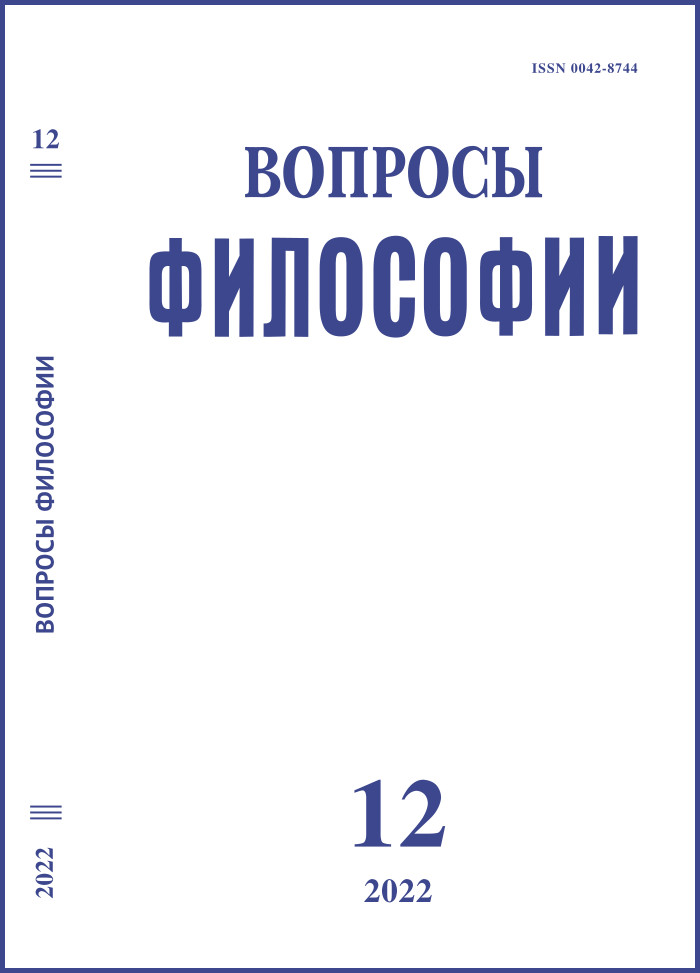Polemics and Popularisation: Aspects of Kant’s Early Reception in Russia
DOI:
https://doi.org/10.21146/0042-8744-2022-12-105-113Keywords:
I. Kant, F.W.D. Snell, A.S. Loubkin, P.S. Kondyrev, Russian philosophy, Kantianism, philosophical reception, philosophical educationAbstract
The reception of Kant’s philosophy in Russia at the beginning of the 19th century was focused mainly on religious and ethical issues, although it did not exclude theoretical and cognitive questions. The search for textbooks that would adequately and at the same time comprehensibly introduce students and the educated public to the basic ideas of the Kantian philosophical system led two
professors at Kazan University, Alexander S. Loubkin and Petr S. Kondyrev, to the textbook on philosophy for beginners by Friedrich Wilhelm Daniel Snell, the German Kantian philosopher, pedagogue and populariser. The work they did in preparing the Russian edition of that textbook was not confined to translation, although the translation of the philosophical text itself required scrupulous terminological work, since there were as yet no equivalents for many philosophical terms in Russian. Each of the translators provided parts of the textbook with their own explanations and additions, with the parts on moral philosophy and philosophy of religion attracting the most interest and polemical objections. Loubkin’s criticism of Snell and thus in most cases of Kant concerns such key concepts and provisions of Kantian practical philosophy as practical reason, the end of moral acts, the distinction between thing and person, the categorical imperative, the feeling of respect for the moral law and others. The real stumbling block for Loubkin was Kant’s solution to the problem of the relation between religion and morality and his choice of a foundation for morality. Loubkin suggests that the moral is grounded in religion and proposes as the criterion of morality the correspondence of an act to the Divine Will.
Downloads
Published
Versions
- 2025-02-07 (2)
- 2022-12-31 (1)

